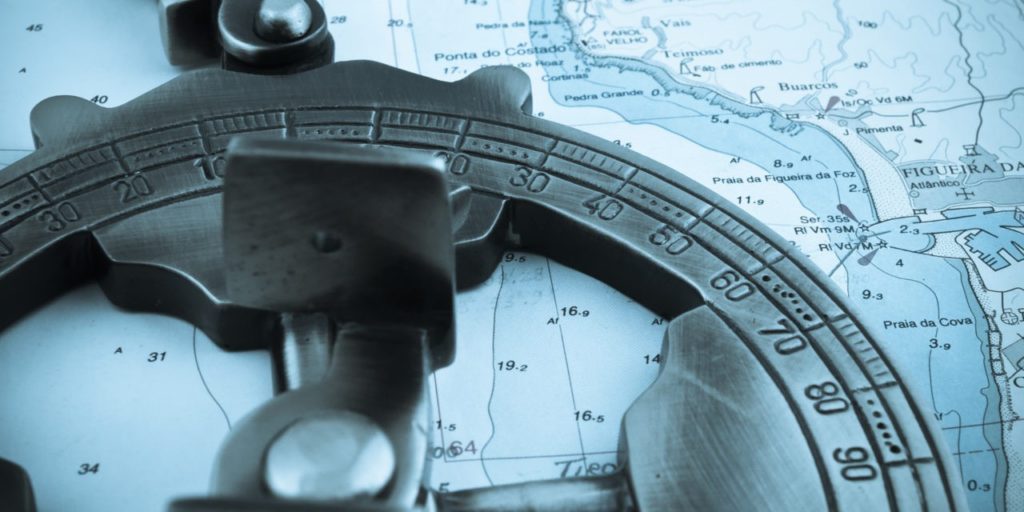
Credit: Shutterstock
IACS launches its 2018 Annual Review
The IACS published its Annual Review addressing activities it undertook the past year, including articles about key areas such as sulphur 2020, autonomous ships and cyber safety, as well as a ‘Class Report’ with data on the IACS fleet.
Shipping | 23/04/19
Jeong-kie Lee, IACS Council Chair and Chairman, and CEO of Korean Register comments that
IACS is committed to providing the industry with the appropriate tools to manage such concerns, as part of its wider mission to deliver safer, cleaner shipping.
Highlighting IACS’s activity, Robert Ashdown, IACS Secretary General noted that during 2018 IACS took steps to make sure that its position on major matters that occurred were grounded in the
long-held IACS values of leadership, technical knowledge, quality and transparency.

The Class Cycle
As experts in safety standards and with an unrivalled technical understanding of ships’ structure and the stresses on them, IACS Member classification societies provide a forum that facilitates and encourages sharing of that in-depth technical knowledge, IACS Members support each other in their development of unified technical requirements and the production of other recommendations and guidance.
Maintaining membership procedures
In order to be certain that its members are compliant with the Membership criteria, the Association conducts a three-yearly review, imposing the same high standards upon existing Members as it does on new applicants.
Additionally, any new member entering IACS is possible to have in their classed fleet non-compliant ships, meaning built or operated vessels outside IACS requirements.
According to that, any non-compliant ships must be publicly identifiable and, to limit this unavoidable discrepancy to the greatest extent possible, any new member must ensure that those ships
fully comply with all applicable technical requirements within three years of joining. During the three-year period, all non-compliant ships will be subject to the Procedural Requirements of IACS’ PR1D.

IACS presented its 2018 numbers. In light of this, IACS had:
- 2,134 new-builds under member’s class collectively;
- 111 new/revised IACS resolutions and recommendations;
- 51 meetings of IACS working groups;
- 11 meetings within the industry;
- 276 Accredited Certification Body’s audits conducted by IACS members collectively together with a number of VCAs;
- 628 audit findings for IACS members collectively;
- 48 submissions to IMO;
- 20 IMO meetings that IACS attended as an NGO.
In the meantime, during 2018 IACS also focused in a ‘greener’ future:
The requirements of the EEDI aim to improve the energy efficiency level of new ships and will become progressively more stringent in future years compared with similar ships built from 1990 to 2000.
IACS has considered and evaluated technical consequences (i.e., engine derating, passing through the barred speed range and shaft alignment issues) of ship machinery design resulting from EEDI implementation in order to contribute to discussions at IMO on further EEDI strengthening.
Yet, concerning the sulphur limit, IACS highlighted that IACS members should recognise that operational issues or those related to the chemistry of the fuel are out of IACS’ remit and expertise.
Moreover, the Association provides a framework to establish clear high-level positions on these issues in a manner consistent with its five year strategic plan and aligned with its core values of quality operations, transparency, technical knowledge and leadership for industry and interested stakeholders.
IACS Position Papers on key industry topics are issued and reviewed regularly.
These papers give detailed information on the subject matter, present the Association’s position on the subject and provide a summary of actions taken by the Association.
The report also pays attention to the industry’s steps towards autonomous ships.

Mikhail Musonov, IACS Safety Panel Chairman stated
The shift to fully autonomous ships will be gradual
What plays a crucial role in autonomous shipping is:
- Cyber security;
- Intelligent systems;
- Regulatory framework.
Also, IACS managed in the past year to present that the adoption of the International Code on the Enhanced Programme of Inspections During Surveys of Bulk Carriers and Oil Tankers, 2011 (ESP Code) is a mandatory instrument of IMO by Resolution A.1049(27), which is now broadly recognised as a milestone.
More importantly, IACS presented the number of recognising flag authorities, meaning the number of RO agreements with Flags, with general or standing authorization to act on their behalf for any statutory certificate.

Concluding, Robert Ashdown, IACS Secretary General noted
It is more important than ever that IACS engages frequently and robustly with our key stakeholders so that we can navigate through the challenges with a clear and common destination in mind.
For more information, you may click on the PDF herebelow

Best Regards,